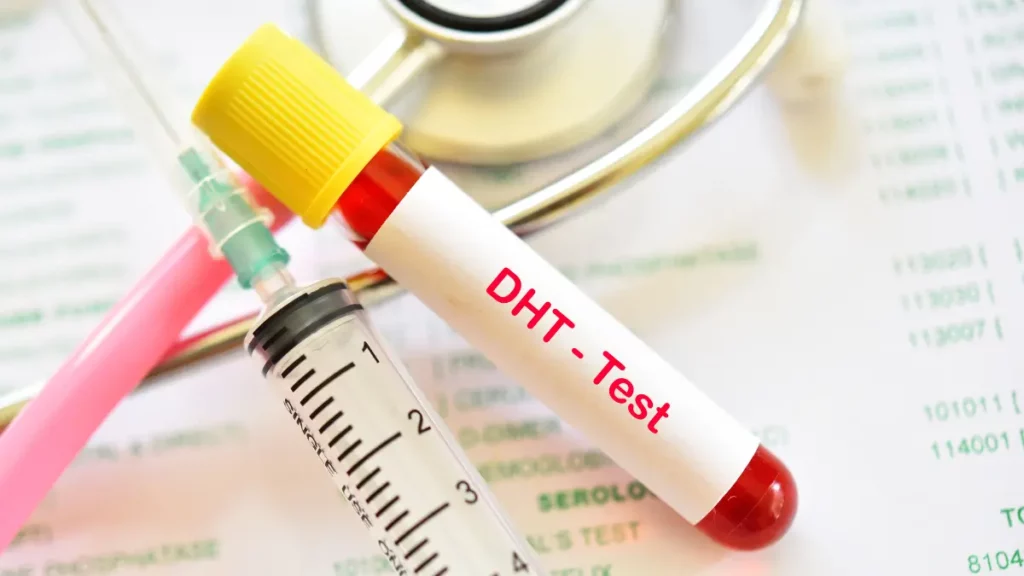Erectile Dysfunction, or ED, is a sexual health issue that affects several men worldwide. It impairs a person’s ability to achieve or maintain an erection.
If you experience trouble getting or maintaining an erection during sex, you should consider getting tested for ED.
There are various Erectile Dysfunction tests doctors conduct to diagnose the condition.
This article explores the different tests used in diagnosing ED. It also discusses the purpose of these tests and how they help determine suitable treatment options.
What do Erectile Dysfunction tests do
Erectile Dysfunction tests are medical examinations that help find the underlying cause of the condition.
These tests can help identify the specific physical, hormonal, psychological, or lifestyle factor contributing to ED.
The common tests include a physical examination and blood tests to evaluate the hormone and testosterone levels.
Understanding the cause of Erectile Dysfunction can help determine the most appropriate way to treat it.
It can help improve the user’s sexual health and quality of life.
When to get an Erectile Dysfunction test
It is advisable to get an ED test if you experience continuous trouble achieving or keeping an erection.
You should seek medical advice & get tested for ED if you notice a continuous decline in your sexual performance.
Also, people with existing health problems like heart disease or Diabetes may be at a higher risk. They should consider getting tested for ED early.
Consulting a healthcare professional is essential for proper evaluation and guidance on ED testing.
Recommended read: Can Diabetes cause ED? Find out – Exploring the Link Between Diabetes and Erectile Dysfunction
How to test for Erectile Dysfunction: Diagnosis
The diagnosis of ED involves multiple steps, including a physical examination and a review of the patient’s medical history.
Based on the outcome, you may need to undergo additional tests to determine the root cause of your problem. These may include ultrasounds, urine tests, or psychological tests.
Let us take a closer look at the types of Erectile Dysfunction tests.
Physical examination
A physical examination is usually the initial stage of diagnosing Erectile Dysfunction (ED).
The healthcare provider will test the patient’s general health, including blood pressure, pulse, and genital examination.
They may look for indications of nerve injury, decreased blood flow, and any other physical abnormalities that could lead to ED.
Blood tests
 Source: jarun011_from_Getty_Images
Source: jarun011_from_Getty_ImagesDoctors conduct Erectile Dysfunction blood tests to evaluate hormone (including testosterone) levels. The tests help them check for hormonal imbalances.
They also help check for underlying cardiovascular conditions like Diabetes or high blood pressure that could contribute to ED.
A blood test for Erectile Dysfunction helps healthcare professionals understand the causes and make suitable treatment decisions.
Nerve tests
Erectile Dysfunction nerve tests assess the function of the nerves involved in the erection process.
They help detect nerve damage, which can affect the sexual stimulation required for erections.
These tests include nerve conduction studies to measure nerve response or electromyography to analyze nerve activity.
They also include a test called bulbocavernosus reflex which helps check nerve reflexes in the genital areas.
Recommended read: Learn about the link between nerve injury and ED here – A Guide To Understanding And Treating Nerve Damage Erectile Dysfunction
Ultrasound
Ultrasound for ED is a diagnostic test that uses sound waves to generate images of the penile arteries.
Your physician may recommend ultrasound imaging to check penile blood flow. This noninvasive and painless test identifies any problems with blood circulation.
Ultrasounds can check for blockages or abnormalities in the blood vessels that supply the penis.
Psychological exam
Erectile Dysfunction can often occur due to psychological factors. In such situations, the patient may have to take a psychological evaluation to assess their emotional and mental health.
The test may look for signs of stress, Anxiety, Depression, or relationship issues affecting sexual function to diagnose ED.
Recommended read: Can mental health issues like Depression affect your sex life? Find out in our article – Depression And Erectile Dysfunction: Are They Related?
Urine tests
Urine tests are not the standard method to diagnose ED. Doctors only conduct urine tests when other tests don’t yield conclusive results.
These tests help detect indications of infection or underlying urinary tract issues that could contribute to ED.
How to treat ED after diagnosis
After diagnosing ED, your physician will suggest treatment options based on the underlying cause.
They may recommend certain lifestyle changes or psychotherapy to control your condition. If necessary, they may prescribe medication.
Let us discuss these methods of treatment:
Lifestyle changes
Adopting a healthy lifestyle can help control ED in the early stage. can help.
Regular exercise, a healthy diet, and weight control are essential to treat and prevent the progress of ED.
In addition, it is vital to avoid smoking and excessive alcohol consumption.

Medicines
Prescription medications like Phosphodiesterase type 5 (PDE5) inhibitors can improve penile blood flow and enhance erectile function.
Your doctor may prescribe Erectile Dysfunction pills like Sildenafil (Viagra), Tadalafil (Cialis), or Vardenafil (Levitra).
Psychotherapy
Psychotherapy includes talk therapy to address the psychological factors contributing to ED.
lt helps the individual understand and address the emotional and mental issues impacting their sexual function.
Psychotherapy can help deal with performance anxiety and stress. It can address self-esteem issues and enhance overall sexual well-being.
Key takeaways
Erectile Dysfunction tests play a crucial role in diagnosing the underlying causes of ED. They help medical professionals develop individualized treatment strategies.
Users can improve their erectile strength by seeking medical advice, taking necessary tests, and exploring various treatment options.
Your physician will review your medical history, conduct a physical examination, and take blood tests to diagnose your ED.
In case, these tests don’t produce conclusive outcomes, you may need to undergo additional tests. These include psychological interventions, urine tests, nerve tests, and ultrasounds.
Open communication with healthcare providers and early intervention is essential for effectively managing ED.
Frequently Asked Questions
How can I test for Erectile Dysfunction at home?
There are no definitive at-home tests. But you can self-evaluate symptoms and collect data to discuss with a healthcare professional for a precise diagnosis. Your doctor might conduct a physical examination and blood tests.
Is there a test for Erectile Dysfunction?
Yes, healthcare professionals diagnose Erectile Dysfunction using tests like physical exams, blood tests, urine tests, ultrasound, and psychological evaluations.
Do testosterone boosters work for Erectile Dysfunction?
Typically, testosterone boosters are not the first-line treatment for Erectile Dysfunction.
Testosterone replacement therapy may work in cases where low testosterone levels contribute to ED.
When should I consider getting tested for Erectile Dysfunction?
If you have persistent erection problems, you should seek medical advice and get tested for ED.
Getting an accurate diagnosis from a doctor is essential to determine suitable treatment options.
What should I expect during a physical exam for Erectile Dysfunction?
A physical examination may include measuring blood pressure, inspecting the genital area for abnormalities, and evaluating nerve function. It assists in identifying physical factors that contribute to ED.
When referencing outside resources, GoodrxMedicine always provides full citations. To learn more about the measures we use to maintain the quality of our content, please review our Content Information Policy.















